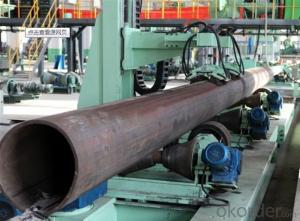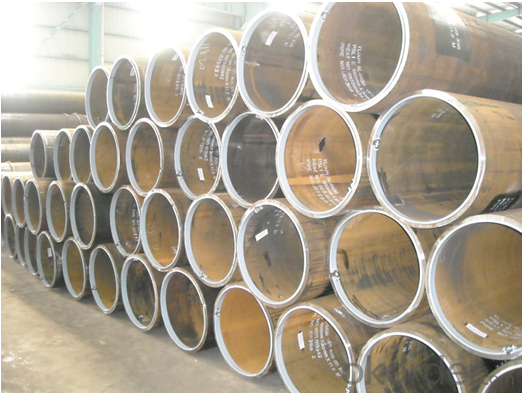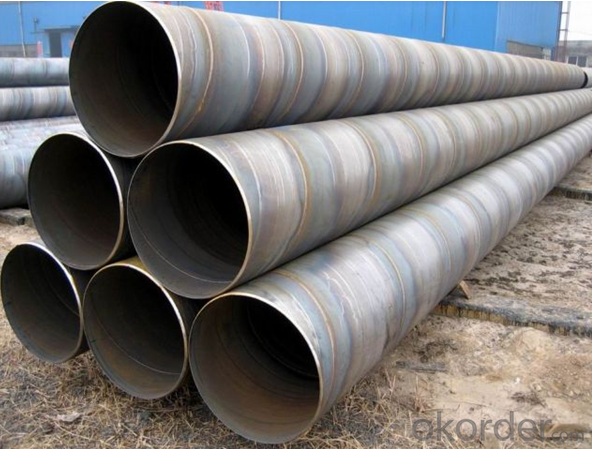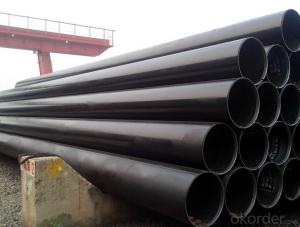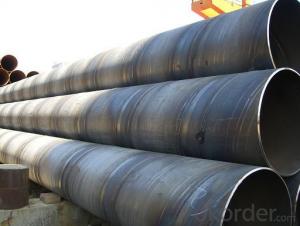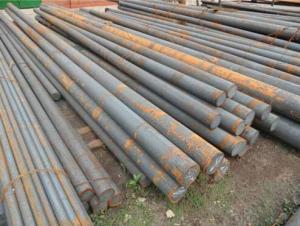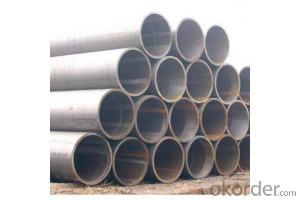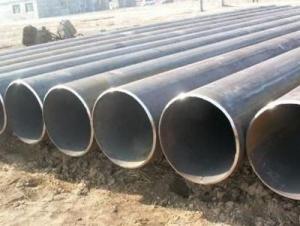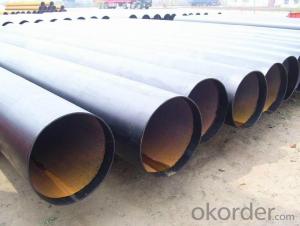API5L CARBON STEEL LSAW PIPE Gr.B,X42-X70 PSL1
- Loading Port:
- China Main Port
- Payment Terms:
- TT or LC
- Min Order Qty:
- 25MT m.t.
- Supply Capability:
- 9000MT m.t./month
OKorder Service Pledge
OKorder Financial Service
You Might Also Like
Product Description:
1、Structure of API5L CARBON STEEL LSAW PIPE Gr.B,X42-X70 PSL1 Description:
2、Main Features of the API5L CARBON STEEL LSAW PIPE Gr.B,X42-X70 PSL1:
• High manufacturing accuracy
• High strength
• Small inertia resistance
• Strong heat dissipation ability
• Good visual effect
• Reasonable price
LSAW PIPE is formed by drawing a solid billet over a piercing rod to create the hollow shell. As the manufacturing process does not include any welding, seamless pipes are perceived to be stronger and more reliable. Historically seamless pipe was regarded as withstanding pressure better than other types, and was often more easily available than welded pipe.
3、 API5L CARBON STEEL LSAW PIPE Gr.B,X42-X70 PSL1 Images:
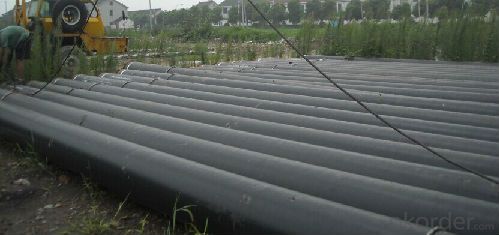
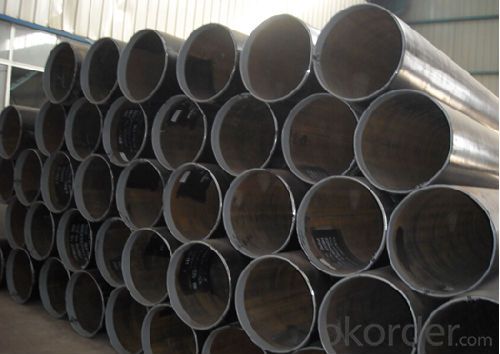
- Q: How are steel pipes used in the construction of desalination plants?
- Steel pipes are used in the construction of desalination plants for various purposes such as transporting seawater, brine, and treated water, as well as for structural support in the plant's infrastructure. These pipes are durable, corrosion-resistant, and capable of withstanding high-pressure conditions, making them ideal for the harsh and corrosive environment of desalination plants.
- Q: How are steel pipes used in the automotive manufacturing industry?
- Steel pipes are commonly used in the automotive manufacturing industry for various purposes such as exhaust systems, fuel lines, and structural components. They provide durability, strength, and resistance to high temperatures, making them ideal for these applications.
- Q: What are the common sizes of steel pipes?
- Common sizes of steel pipes can vary depending on the application, but some common sizes include 1/2 inch, 3/4 inch, 1 inch, 1.5 inches, 2 inches, 3 inches, 4 inches, 6 inches, 8 inches, 10 inches, and 12 inches in diameter.
- Q: How do steel pipes perform in high-temperature environments?
- Steel pipes perform well in high-temperature environments due to their excellent heat resistance properties. They can withstand elevated temperatures without losing their structural integrity or strength. Additionally, steel pipes have low thermal expansion, which reduces the risk of deformation or cracking under extreme heat. This makes steel pipes a reliable choice for various applications in industries such as oil and gas, power generation, and chemical processing, where high temperatures are common.
- Q: How do you calculate the pipe friction loss for steel pipes?
- The pipe friction loss for steel pipes can be calculated using the Darcy-Weisbach equation, which takes into account the pipe diameter, length, roughness, flow rate, and fluid properties. This equation considers the pressure drop caused by friction as the fluid flows through the pipe. By solving this equation, the pipe friction loss can be determined.
- Q: What is the outer diameter of the steel tube?
- The diameter of a steel pipe refers to the diameter of the steel pipe. The specifications of the steel tube is normal with diameter (diameter and thickness) said, for example 100MM outer diameter and wall thickness of 5MM tube is marked with 100*5.
- Q: Can steel pipes be used for underground air supply systems?
- Yes, steel pipes can be used for underground air supply systems. Steel pipes are often used in underground applications due to their strength, durability, and resistance to external factors such as corrosion and impact. They can withstand the pressure and temperature requirements of air supply systems and can be easily installed underground. Additionally, steel pipes have a long lifespan, making them a cost-effective choice for underground air supply systems. However, it is important to consider factors such as soil conditions, potential for corrosion, and local regulations when selecting the appropriate steel pipes for the specific underground air supply system.
- Q: How are steel pipes repaired if they are damaged?
- Steel pipes can be repaired if they are damaged through various methods such as welding, patching, or replacing the damaged section with a new pipe. The specific repair technique depends on the extent and nature of the damage.
- Q: How are steel pipes used in the manufacturing of food and beverage processing plants?
- Steel pipes are commonly used in the manufacturing of food and beverage processing plants due to their durability, cleanliness, and resistance to corrosion. These pipes are utilized for various purposes such as transporting liquids, gases, and ingredients within the plant. They are also essential for the distribution of water, steam, and other fluids required in the production and cleaning processes. Additionally, steel pipes are used for the installation of equipment, such as pumps and valves, ensuring a safe and efficient operation of the plant.
- Q: What is the difference between black steel pipe and galvanized steel pipe?
- The main difference between black steel pipe and galvanized steel pipe lies in their coating. Black steel pipe is untreated and has a dark, matte appearance, while galvanized steel pipe is coated with a layer of zinc to prevent rusting and has a silver, shiny appearance. This coating makes galvanized steel pipes more durable and suitable for outdoor use, while black steel pipes are commonly used for indoor plumbing and gas lines.
Send your message to us
API5L CARBON STEEL LSAW PIPE Gr.B,X42-X70 PSL1
- Loading Port:
- China Main Port
- Payment Terms:
- TT or LC
- Min Order Qty:
- 25MT m.t.
- Supply Capability:
- 9000MT m.t./month
OKorder Service Pledge
OKorder Financial Service
Similar products
Hot products
Hot Searches
Related keywords
